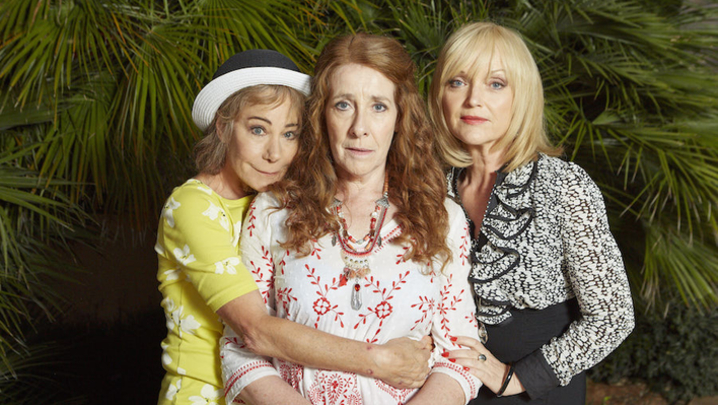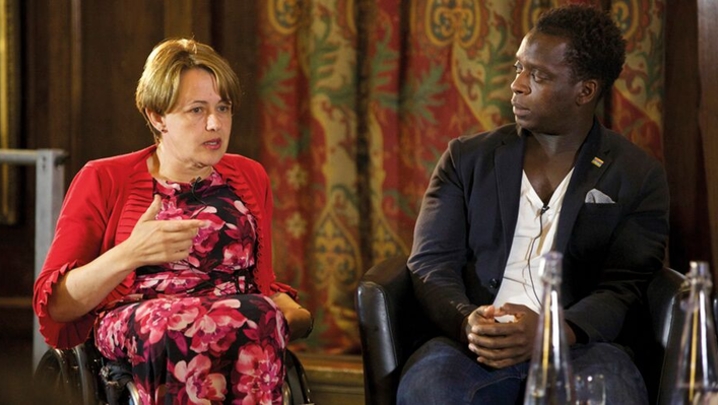More data and transparency are needed if TV companies are to stop discriminating against women. So why wait, asks Tara Conlan
Why, 46 years after the Equal Pay Act, are women in television still being paid less than men? “A man at exactly the same grade as me, with far less education and experience, and who joined the BBC after I did, was paid £10,000 more than me,” says one female staffer.
“I am paid £5,000 less than a man on the same grade, despite having more responsibility and having worked more years on the team,” complains another.
Outside of the BBC, a similar picture emerges. “Until recently, I earned less than half the salary enjoyed by my male colleagues,” comments an employee from the commercial sector.
“I submitted an equal-pay review request because I was being paid substantially less than my male peers,” says yet another staffer. “I was given a raise but am still on less and this extra money was not backdated.”
The revelations were made to the National Union of Journalists in a survey which found that women were more likely to be judged on their looks, given “softer” stories to cover and that many were earning less than men.
The issue has been around for years. In 1997, it emerged that Sue MacGregor was paid £20,000 less than her BBC Radio 4 Today colleagues, John Humphrys and James Naughtie. Meanwhile, Sandi Toksvig missed out on fronting Have I Got News For You more than two decades ago because it was felt that a woman could not carry the show.
Catherine Riley, head of communications at the Women’s Equality Party, which was co-founded by Toksvig, says that, despite some progress, “there is a gender pay gap in broadcasting. According to [jobs website] Glassdoor, men in the media earn 6.6% more than women.”
She adds that there is also “a promotion gap because of a cultural difference. Women are often segregated in different areas of the broadcast industry. Hard news tends to be for men. Men commentate on women’s sport but, curiously, it does not happen as much the other way around.”
Riley continues: “The gender pay gap is exacerbated by the fact that men stay in the office longer, not because they are necessarily doing better work. We’re still so ingrained in that culture of long hours. This shows that you’re a better employee than someone who starts at 8:00am and clocks off at 4:00pm to get their kids.”
Last December, actor Joanna Lumley encapsulated the main problem behind the “evil” pay gap when she told me: “The difficulty is that practically no actors actually say what they get. This is either because it’s such a grossly huge amount of money that they know it’s miles more than the person they’re talking to – or it’s such a humble and desperately small thing that they daren’t say.”
One agent argues that transparency is vital and that it is only when agents have male and female clients doing the same job that any disparity is revealed. “It’s impossible to know unless you get the facts and figures,” points out the agent. “Women are short-changed. It does happen to people on screen as well, there’s no doubt about that.”
Even in situations where there has been a woman in charge, this has often not helped female presenters get paid more, adds the agent.
“This is a depressing state of affairs and patently unfair for women"
The BBC’s 2014-15 Equality Report says that its “overall gender pay differential” is 8%, down from 8.4% in 2013. However, 11% of staff had an “unexplained pay differential” of more than 5%, up from 10% of staff the previous year. The BBC asks its managers to investigate any gender pay discrepancy greater than 5% that cannot be explained by things such as length of service.
The most recent figures, obtained by a freedom of information request, show that the mean salary of male and female full-time staff employed by the BBC in May 2011 was £41,816 for men and £36,827 for women.
A BBC spokesman says: “The BBC takes its responsibilities under the Equality Act 2010 very seriously and we conduct equal-pay reviews on an annual basis. Pay is determined individually, based on a range of factors including grade, role and responsibilities.”
The House of Lords Communications Committee’s inquiry into women in broadcasting reported last year that “discrimination against women, particularly older women, still exists in the industry”, but that “there isn’t enough data on the representation of women in the sector to fully understand the extent of the problem”.
What there is makes for interesting reading. Of the 42 BBC presenters revealed by website Heat Street in May to be earning more than £149,000, only 12 were women.
And, according to the Reuters Institute for the Study of Journalism’s report “Journalists in the UK”, half of women in the sector earn less than £2,400 a month, compared with 34% of men.
The NUJ is sure this is consistent with the situation across broadcasting.
Its General Secretary, Michelle Stanistreet, says: “The Reuters report, and our own surveys of women working in broadcasting, show women getting paid less while doing the same job as male colleagues. Many also miss out on promotion.
“This is a depressing state of affairs and patently unfair for women. The industry is losing out on a huge pool of talent if most of the top, highly paid jobs are going to men.”
With the creative industries now worth £84bn per year to the UK economy, there is clearly the money for equal pay
The NUJ has also called for Ofcom to monitor “on- and off-screen equality levels in all the media organisations under its remit”.
As women are more than three times as likely to be in part-time employment as men, it is no surprise that median part-time workers’ hourly wages are far lower than full-timers’ hourly pay. Across all industries, female part timers do not, on average, earn less than male part-timers; the problem, rather, lies in why so many women are deterred from full-time employment.
Riley says the pay disparity emanates “from a complicated mix of things” including, “women taking time out for child rearing and caring… so we are advocating universal free childcare from the end of parental leave at nine months up to schooling age”.
Perhaps if women invoiced for the childcare, cooking and cleaning they do, things might change. According to a 2010 Office for National Statistics (ONS) study, if parental childcare were paid at a commercial rate, it would be the equivalent of 23% of GDP. Household laundry would add a further 6% of GDP.
With the creative industries now worth £84bn per year to the UK economy, there is clearly the money for equal pay.
Stanistreet says: “An overwhelming message from our members is the need for a more flexible workplace, where people who work part-time are taken seriously and given jobs with responsibility. As a union, we are working and campaigning within broadcasting organisations to bring this about.”
ONS statistics highlight another effect of the unequal burden of childcare on women’s careers and pay: younger women, on average, earn more than men between the ages of 22 and 29 but, by the time they are 41, men are paid 4.6% more.
The difference becomes more stark the further up the pay scale you go. TUC research into the top 5% of earners, published in November 2015, reveals that men are paid 45.9% more than women. “These figures show that the glass ceiling is barely cracked, let alone broken,” says TUC General Secretary Frances O’Grady.
According to City University head of journalism Professor Suzanne Franks, the issue is “something that employers don’t particularly want to talk about. There’s no pressure for them to talk about it until there’s legislation.
“Naming and shaming and making it an issue is going to go a long way to making people realise that this is not acceptable. It’s changing very slowly, but when you do dig down and find anecdotal evidence, it is quite shocking what the gaps are. People don’t imagine that it still goes on but it absolutely does.”
Under new legislation, companies with more than 250 employees will have to start disclosing the average pay (including bonuses) of their workforce by gender no later than April 2018. The Conservative Government’s plan for a league table ranking large firms by gender pay gap was long resisted by business groups – and parts of the Tory party.
Riley thinks that the Government’s pay reporting plans are good but comments: “There’s no reason that couldn’t start tomorrow. Pay data is already aggregated in companies.”
She also wants the legislation to extend to companies with more than 50 employees: “We all need to be honest about what we’re getting paid and what we’re getting paid for. Secrecy and protection serve to prop up unfairness.”






